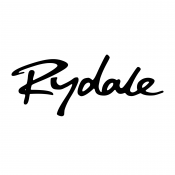Dogs love to eat and we all know they will eat pretty much anything given the chance. But as a responsible pet owner you need to ensure that your dog doesn’t eat the wrong thing so you can keep them healthy. This article looks at 7 foods you shouldn’t let your dog eat.
Chocolate
We’ve all heard the rumours and it’s true! As much as we all love a delicious piece of chocolate now and again, unfortunately, feeding chocolate to your furry friend is a very bad idea.
The ingredient in chocolate that is toxic to dogs is called theobromine. Us humans can easily metabolise theobromine, but dogs digest it much more slowly which allows toxic levels to build rapidly in their system. The size of your dog really does matter too. If you have a large dog who was a bit naughty and they stole a piece of chocolate or helped themselves to the last square of your bar, it’s unlikely that this would seriously harm them as it wouldn’t provide enough theobromine to be harmful. Whereas, if you have a much smaller dog and they get their paws on a whole box, we highly recommend you take them to the vets as soon as you can. In simple terms, just don’t feed your dog any chocolate.
There are so many tasty treats in the supermarkets and pet shops that your pooch would love, so save the chocolate for yourself!
Avocado
Avocados have become one of the trendiest health foods of today. With Instagram pictures galore, this nutritious snack is what everyone’s raving about.
Humans think avocados are delicious, but can dogs eat them?
Avocado contains persin, a fungicidal toxin, which can cause serious health problems and even death in many animals. Vets have been known to say dogs are more resistant to persin than other animals, but that doesn’t mean avocados are 100% safe for your dog to eat. Persin is a natural anti-fungal that can be produced within the avocado plant.
Can dogs eat any part of an avocado?
Avocado pulp is not toxic to dogs, but other parts of the avocado can be. It isn’t with the skin or meat, it’s within the pit. The pit doesn’t digest well in a dog’s intestinal system and might cause a blockage. For example, if a human consumed something indigestible like a coin or stone and couldn’t digest it then it would need surgically removing. If your dog eats a whole avocado it is extremely unlikely that they will be able to fully digest it, and the only option you will be left with is to surgically remove it, so be sure to put those avocados high up out of harm’s way.
Sweets & Cake
If your dog sneakily eats vanilla and jam sponge cake you made the night before, they may experience shaking which comes from the sugar overload or vomiting and diarrhoea.
We know candy and cake contains A LOT of sugar and frankly, sugar provides zero nutritional benefits for your dog. You may think a little throw of sponge cake or a cheeky piece of candy will make your dog happier, but over time, sugar contributes to weight gain, diabetes, and generally poor health.
If your dog does happen to be in a situation where way too much sugar is consumed, they should generally stabilise after a few hours. If not, call your vet and seek some advice. We always try to encourage pet owners to share healthier treats with your dog instead.
Onions
It’s not the most obvious things to feed dog and you may think – why would anyone feed a dog an onion?
We know many pet owners like to cook up an extra plate or two when cooking meals. Nine times out of ten, any leftover will likely be fed to the dog. Onion is one of the most common ingredients to add in meals and food preparation.
Think shepherds pie and bangers and mash, all very meaty meals your pooch will love. Onion powder is in a surprisingly wide range of foods also, and it only takes a small amount to cause toxic effects. Every single part of an onion plant is toxic to dogs. This includes the flesh, leaves, juice, and processed powders. Either given completely raw, fully cooked, fried or powdered – onions are very harmful.
Raw Meat
In short, yes, dogs can digest raw meat, but does that mean they should be given it to eat?
Absolutely not.
Why do we as humans disinfect the kitchen work tops when handling and preparing raw meat for meals?
Simply because we know that all raw meat has the risk of containing harmful bacteria like salmonella. So not only can raw meat be harmful to humans, but dogs too! No vet will ever recommend you feeding your dog raw meat…
Salty Snacks
Salty foods are always fun to share, but don’t share too much with your beloved dog.
High doses of salt can cause tremors, high temperature, seizures, and even death in major cases. In general, salt isn’t bad for dogs – in fact, it’s an essential part of their diet. But this must be managed and given in proportion.
Things like crisps, savoury biscuits, processed meat, like sausages and burgers, chips or cheese are things you should avoid putting in your dogs’ diet.
With salt, it’s a case of moderation. Having too much salt in your dogs’ diet can cause problems, including dehydration if they consistently eat too much. Unfortunately, though, like it is to humans, salt is also very tasty to dogs. It’s usually at events like BBQ’s are the worst for little salty snacks here and there, but don’t give in their wagging tails and puppy dog eyes, a high salt diet just isn’t good for them.
Bones
It’s the oldest cliche in the book and it seems so obvious to give a dog a bone, right?
To satisfy those pitiful sad eyes pining for your leftover bone from dinner. Cooked bones, including those that come from table scraps, are not safe for your dog to eat. They splinter into shards that can cause choking and serious damage to the dog’s mouth, throat, or intestines.
As well as all that nasty stuff, your dog’s teeth can take a real battering which can result in a hefty dentist bill too. We always recommend chew sticks and delicious biscuits smothered in their favourite flavours.
———————————–
Rydale Country Clothing is a specialist country clothing retailer that offers a range of dog clothing.
is a specialist country clothing retailer that offers a range of dog clothing.

These articles have been provided by guest authors as acknowledged in the article body. If you would like to contribute an article to this site, then please get in touch.